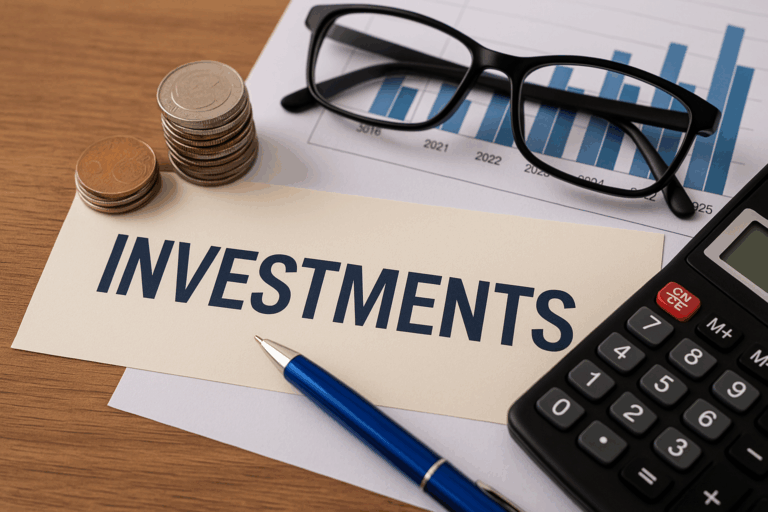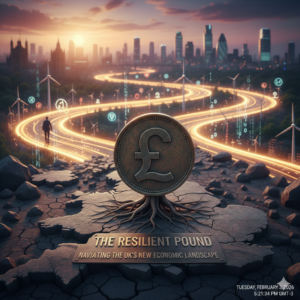
Guide to Investment: The Essential Guide for Business and Finance Readers
In an increasingly complex world of finance, investment has become a necessity in order to build long term wealth and financial security. Those in the UK need to realize what different types of investments are, what their risks/hazards are, and the profit/return on such investments to be able to make the best decision. In this article, we will discuss basics of investments with available options and how to make a sound investment plan.

What is an Investment?
An investment is an asset or item acquired with the goal of generating income or appreciation. Whereas saving aims to protect capital, investment seeks to grow wealth through taking on differing levels of risk. Standard investment instruments are stocks, bonds, real estate or mutual funds.
Why Invest?
There ar a number of benefits associated with investing over simply parking your cash in a bank account. Savings accounts, for example, might feel secure and give you easy access to your money, but you’ll often find they have lower interest rates that don’t always outpace inflation. In that way, investments could earn a better financial gain which can help people to build their wealth, save for retirement, or send their child to college and so on.
What can I invest in in the UK?
- Stocks and Shares When you invest in stocks, you’re buying a piece of ownership of a company. Investors make money two ways: They can make it from capital appreciation, meaning the shares increase in value, or through dividends – which is money that a company pays to its shareholders. Shares in the UK are mostly traded on the LSE.
- Bonds Bonds are fixed-income securities sold by corporations or governments to raise money. When you purchase a bond, you lend money to the bond’s issuer in return for periodic interest payments and the return of the bond’s face value when it matures. UK government bonds, or gilts, are considered among the lowest-risk investments around.
- Property Investment Property has been favoured by UK investors for many years, both residential and commercial property Let Me Properties / Letting Your Property investors turn to property as an investment not only to generate income, but also as an alternative to investing in the stock market Let Me Properties / Letting Your Property there are also some significant tax advantages to be had from investing in property compared with other forms of investment in the UK Let Me Properties / Letting Your Property. Property investments can provide income through rental income and potential appreciation over time. But property markets can be volatile and property management is a time-consuming task.
- Mutual Funds and ETFs Mutual funds combine money from individual investors to invest in a diversified portfolio of stocks, bonds or other securities. Exchange-traded funds (ETFs) are much like the above, also traded on stock exchanges as if it’s individual shares. These alternative funds have diversified portfolios, and are managed by professional fund managers.
- ISAs (Individual Savings Accounts) ISAs enable people to save a limited amount every year without paying tax on income and capital gains. Stocks and Shares ISAs are a popular choice for UK investors who want to grow their investments in a tax-efficient manner – hence the interest in them.
- Pensions Investing in a pension is essential in terms of retirement. Contributions are commonly tax-privileged, and often employers will match your contributions. Pension funds invest in an array of assets, because savers need to grow their pots over time.
Key Considerations Before Investing
- Risk Level All investments involve some level of risk. You need to analyse your risk tolerance, which is influenced by your financial objectives, and the length of time you would like to invest your money for, as well as the loss you are willing to take. And the younger you are, the younger the percent you might choose to invest in riskier investments, because if the market goes down you have longer to recover.
- Diversification By splitting your investments between several asset classes you lessen the damage resulting from underperformance of any one investment. It is not only that risk decreases when the portfolio is well diversified, but also that the returns are likely to rise.
- Time Horizon Your investment plan should be appropriate for when you need the money. Long-term goals, like retirement, might be able to take on riskier investments, but short-term goals may need safer and more liquid assets in return.
- Costs and Fees Watch for sales loads, management fees and trading costs that can eat into your overall returns. One way to help keep costs down is to compare various investment platforms and funds.
📉 The Importance of Financial Advice
You don’t have to go it alone when investing, because professional financial advice is a smart way to gain knowledge and steer clear of potential financial mishaps. For a customized plan, a competent financial advisor can evaluate your financial standing, suggest appropriate investment vehicles, and assist in developing a personal game-plan.
🧠 Sustainable and Ethical Investing
Sustainable and ethical investing is capturing the attention of UK investors. These are investments that take into account environmental, social and governance (ESG) factors, giving people the opportunity to invest in line with their values. Today, many of the funds are providing ESG-focused options that don’t require giving up potential market returns.
⚠️Tax Considerations
It is important to understand tax consequences of various investments. While ISAs and pensions are tax advantageous, other investments may be liable to capital gains tax or income tax. Records should always be kept and a qualified person should be consulted in order to minimize tax liability.
Common Mistakes to Avoid
Chasing Quick Gains Attempting to time the market, or investing in speculative assets in the hope of quick profits is a recipe for potential disaster.
No Research No research when investing could expose you to bad decisions and unnecessary risk.
Emotional investing Investing based on feelings, like selling most of your holdings during a scary market dive, is rarely a good idea.
🎯 Conclusion:
Best Ways to Invest for Long-Term Goals Investing is the best way to grow your money over time and turn it into wealth so that you can achieve your financial goals. UK investors need to be well informed, assess their risk appetite, and make a prudent plan to succeed. With a little discipline and guidance as required, people can avoid the pitfalls of investing and ensure that
Our Post


The Resilient Pound: Navigating the UK’s New Economic Landscape


